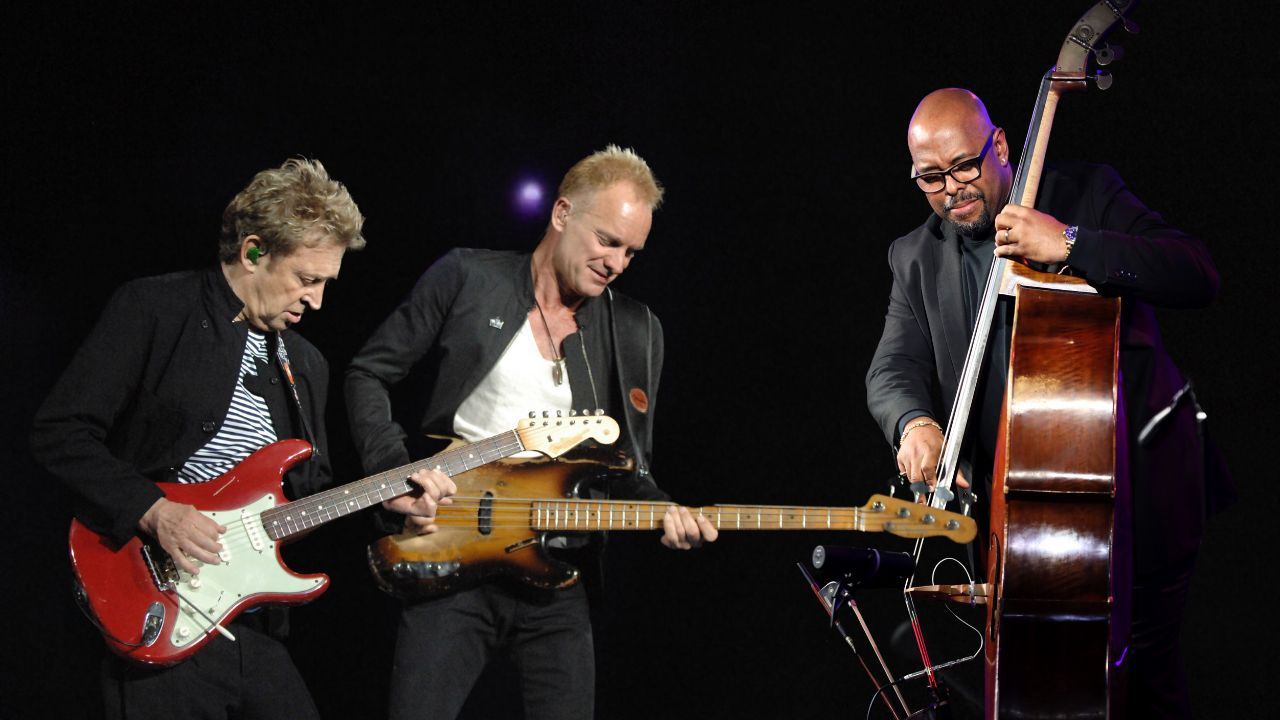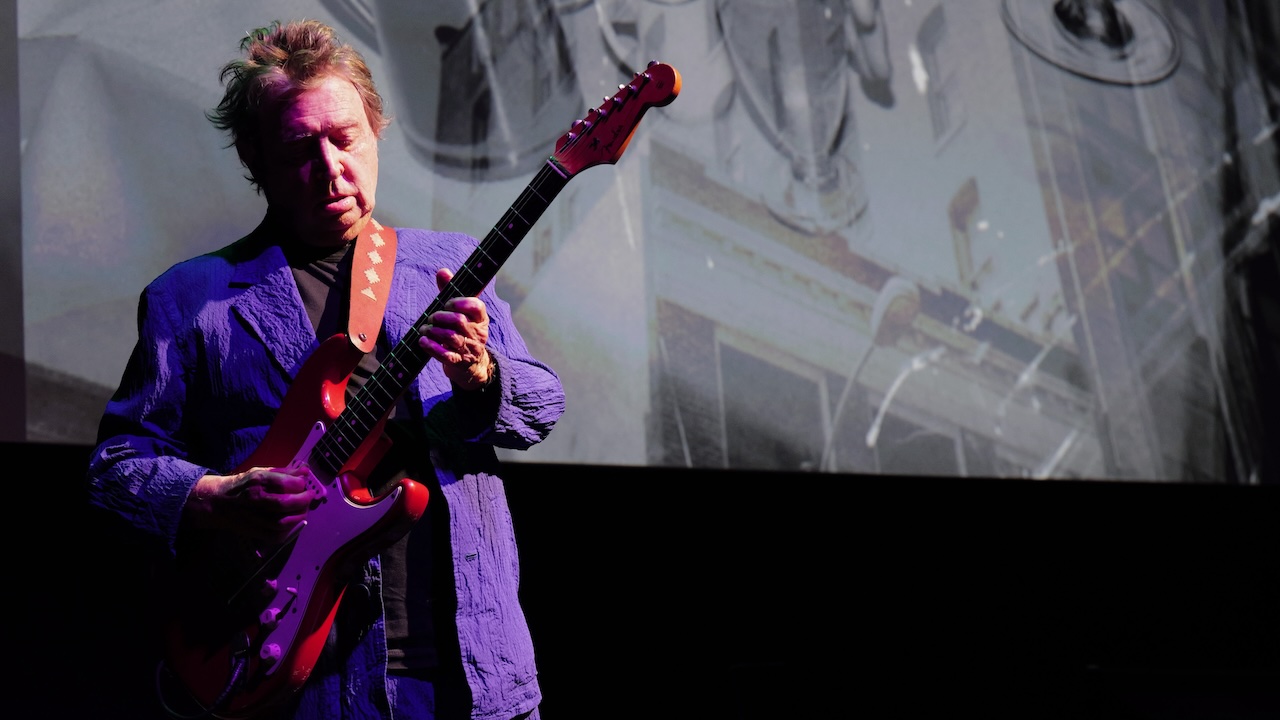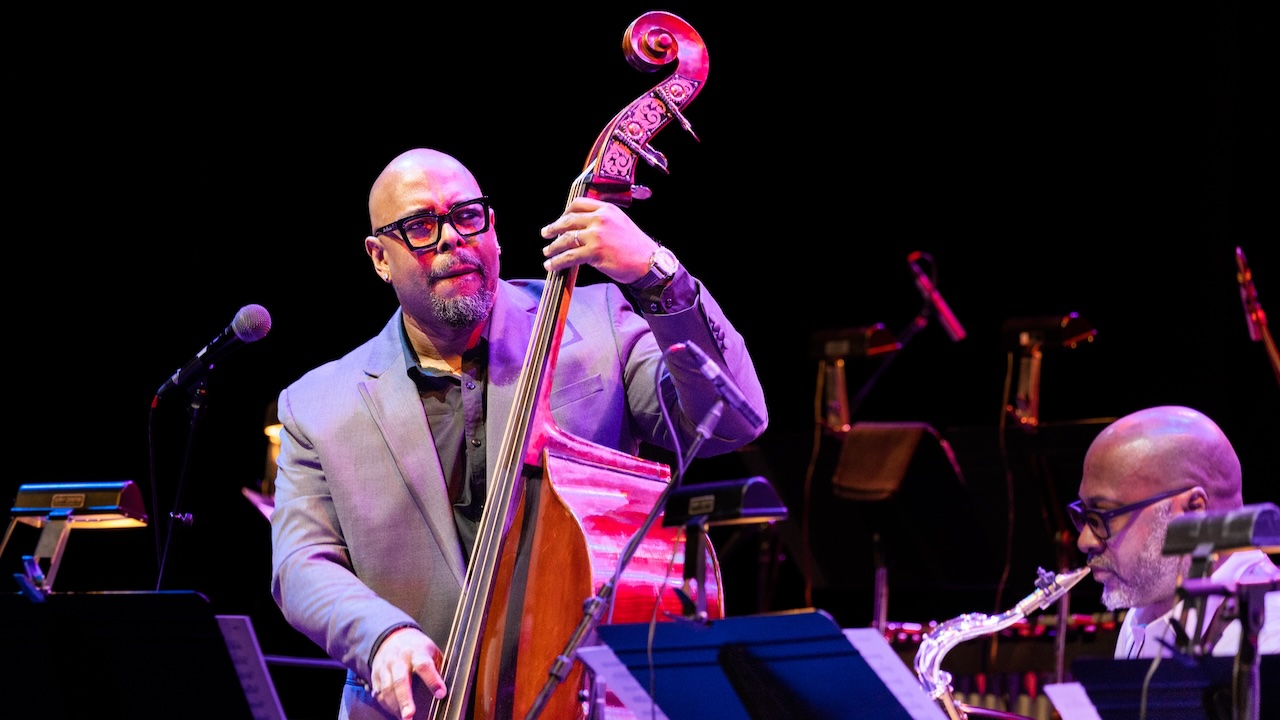
Not many people can work with artists such as James Brown, Paul McCartney, Sonny Rollins, Paul Simon, Celine Dion, Pat Metheny, John McLaughlin, and Sting – but Philadelphian-born bassist Christian McBride takes it all in his stride.
“People ask what it's like to play bass at the same time with Sting, but that hardly comes up because he always says, ‘I hired you to play bass so I don't have to!’”
Sting was one of McBride's steady collaborators throughout much of the ‘90s and the ‘2000s, and also features on McBride’s latest solo venture, Without Further Ado, Vol. 1., alongside his former bandmate, guitarist Andy Summers.
“Sting thought it would be a great idea to call Andy,” says McBride. “He put us in touch, and the next thing I know I'm on an email chain with Sting and Andy Summers. It was all very smooth. I think most pro musicians get things done without a lot of drama.”
That the members of The Police were never best friends is well known, but McBride is quick to play down the legendary tensions within the band. “I guess there's always going to be some kind of sibling rivalry when you’re in an environment like that, but this wasn’t a Police record.”
McBride’s big band rendition of the Police classic Murder By Numbers is already a fan favourite from the album, demonstrating the symbiotic relationship that he’s come to share with Sting.
“Sting is so much more than just a bass player. He's a full-blown musician in all areas – as a songwriter, a singer and an arranger. It’s hard to think of him simply as a bassist.
“He’s also fearless. Who else would break up The Police in the mid-’80s to start a jazz band? It took a lot of guts to do that to the most popular band in the world.”
When did you get started with the big band?
“The first time I put it together was in 2001. I loved it, but I didn't do it again for another 10 years or so. That’s when it really became a steady part of my life.
“We used to have an annual residency at Dizzy’s Club at the Lincoln Centre, but once the pandemic came along the landscape of live music really changed. Anytime we get together now we view it as an event that we should cherish.”
Were you sceptical about Andy Summers playing jazz?
“I saw him in London back in 2003 when he had a trio that played at the Pizza Express Jazz Club, so I knew Andy was one hell of a jazz guitarist, but it was Sting who volunteered him for the session.
“My arrangement of Murder By Numbers was based on a bootleg recording of their 2008 reunion tour, so it felt right to have him involved.”

Were you nervous before the session?
“I was a bit nervous when Sting came in to record his vocal because I didn’t know if he would like the arrangement, but we’ve worked together in the studio before, so I had no preconceived notions of anything unusual happening.
“We did four takes without a break, and he trusted me to pick the best moments and make it sound good. So that's what I did! He’s just a consummate professional. There’s never any drama with Sting.”
Are you the type of person who spends hours going for that perfect take?
“There's a lot going on in a big band, so I do like to get in the weeds with the arrangements. Sometimes you might miss a note that trumpet three plays, or a note that trombone two leaves out.
“Those things don’t really affect the big picture, but I can guarantee that I’ll find a mistake as soon as the music’s been edited, mixed and mastered!”

What’s your method for trying to catch those mistakes?
“I like to do something I call the low-volume test. I never understood why people listen to playback at really loud volumes. I always turn the volume way down until it’s almost at the point where you can't hear it. That’s when you can really pick out the nuances of the arrangement.”
How do you view the roles of the bass and the drums in a big band?
“I think of them as one instrument that has to work together. The only difference is that the drums can’t direct the harmony. Some drummers might come up with some far-fetched intellectual gibberish as to how they can, but they really can’t.
“The drums can only change the rhythm and the momentum of a song. Now, that's very important, but the bass can do that as well. So the bass has a lot more power in that respect.”
How important is your role as the bandleader?
“The band leader dictates the overall vibe and flow of the band, so I think any smart musician will always take their lead from the bandleader. Whenever I play a gig as a sideman, I make sure I’m always paying attention!”
Do bass players make good bandleaders?
“The bass is probably the best place to lead a band from. The piano player might play an A minor chord, but if the bass player plays a C then it becomes a C major chord. So the bass player can navigate, direct and change the harmony at will.
“Not all bass players have the proclivity to do that. Some bass players just do what’s necessary to make the band groove. So you don’t necessarily have to be the leader. Not everyone can be Charles Mingus, you know?”







